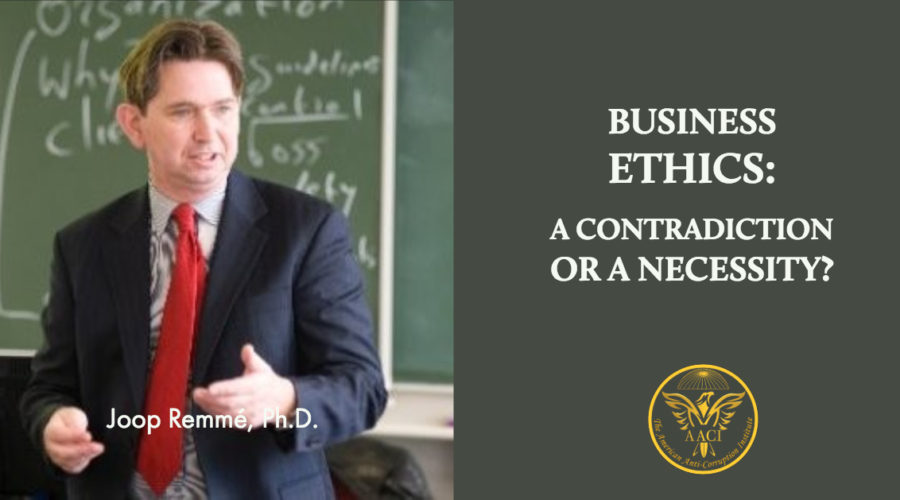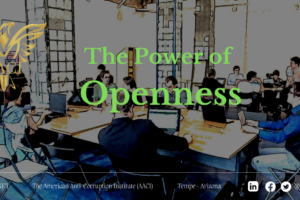
By Joop Remmé, Ph.D.
Dr. Remmé is an academic coordinator/ faculty member at Limburg Graduate School of Business, Netherlands. He is a director at The Netherlands Center of Governance (NCG). He is also a lead expert at The American Anti-Corruption Institute (AACI) in the European Union. Dr. Remmé is a renowned expert in governance and anti-corruption. You may reach Dr. Remmé at remme@knowdialogue.nl
Business has known ethics for a long time. When Adam Smith wrote his Wealth of Nations, in which he advocated market systems, he did so because of ethics, as he argued that the interests of all people would be best served by giving them freedom about how they trade their assets, such as labor, and meet their needs (putting this in context: in his day, the citizens of the UK did not have such freedoms).
Business ethics has often been seen as a kind of luxury. Some NGOs still argue in that way: “now that you are making a lot of money, you should share some of that”. But that is looking at it backwards. Those NGOs treat ethics as something added to doing business, while it is actually about the very nature of business. But we can not blame them for that, as the business world has often advocated the notion that business is a neutral activity, devoid of ethics.
What is business? The creation and exchange of value. From its very nature, business happens in relationships, as value is created with others to trade with yet others. In relationships acceptable behaviours, for which the theory is offered in ethics, serve to solidify those relationships, so they can become fruitful.
There are still managers who think that ethics is about being “soft”, while they see themselves as “hard”. But that is silly. The spreadsheets that those people focus on may contain figures that appear to be clear, but one should not forget that behind those figures are human behaviours and the succes of any business depends on those behaviours. Those managers may consider “the human element” to be soft, but when they ignore it, the figures in their spreadsheets may show them a reality that is hard.
Morality has to be seen as a natural phenomenon, in which desirable behaviours are cultivated and others discouraged. Human beings are not the only creatures that act according to preferences, as many species show the development of preferences out of learning processes. But human beings are creatures that develop the outcomes of those learning processes in theories and other abstract notions (values, principles), which then constitutes ethics.
The qualities of behaviours that are expressed in ethics are typically motivating. For each instance they are expressed as a value and then the value is instrumentalized into morality, which offers guidelines for desirable behaviours. The more the value can be translated into behaviours, the more the value becomes realistic amd attractive.
One of the challenges is that values do not occur in isolation. Typically, we human beings appreciate a
Related Articles:
Integrity, Wicked Problems











































